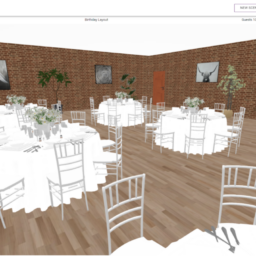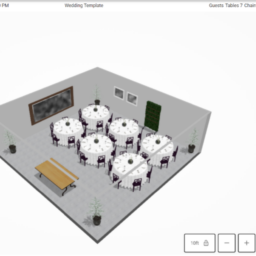The world of events is a thriving, dynamic industry, with every trade show, wedding, concert, and conference representing not just a fleeting moment of celebration, learning, or entertainment but a meticulously planned and executed experience crafted by skilled professionals. If you have a passion for creating memorable experiences and your organizational skills are second to none, a career in event and venue management could be your calling.
But how do you thrive in such a competitive and fast-paced industry? Whether you’re a seasoned event planner looking for a fresh approach or a recent graduate considering a career in the field, this comprehensive guide will equip you with the knowledge and skills to shine in event planning, event management, and venue management.
Understanding the Event Ecosystem
Before taking the plunge, it’s crucial to have a solid understanding of the different components that make up the event industry. The event ecosystem is a complex web, interconnected by various roles and stakeholders, including planners, managers, vendors, sponsors, and attendees.
Defining Your Niche
Identify the events you’re passionate about and where your expertise could lie. Are you drawn to the high-energy world of live music events, or do you see yourself orchestrating the precise coordination of corporate conferences? Defining your niche early on will help you develop specialized skills and knowledge that can set you apart.
Market Research
Stay on top of industry trends and be aware of the market demand for certain types of events. Research what similar events have been successful and what innovations are on the horizon. This information can guide your direction and ensure you stay relevant in a rapidly changing landscape.
Education and Training
Formal education can be influential to succeed in event and venue management, but specialized training and industry certification are equally important. Here’s how you can start building a foundation for success.
Pursuing a Degree in Event Management
Consider pursuing a degree in event management, hospitality, or a related field. Many universities offer programs tailored to preparing students for the intricacies of planning and managing events. A solid academic background can provide you with theoretical frameworks and industry knowledge.
Industry Certifications and Workshops
While a degree is valuable, industry-recognized certifications can give you an edge and demonstrate your commitment to professional development. Look for certifications such as Certified Meeting Professional (CMP) or Certified Special Events Professional (CSEP). Additionally, workshops and short courses can provide practical skills that are only sometimes covered in traditional academic programs.
Gaining Experience
The adage “experience is the best teacher” holds especially true in the event industry. Here are some avenues to start gaining valuable experience.
Internships and Entry-Level Positions
Securing internships or entry-level positions at event planning companies, venues, or in-house event teams can provide hands-on experience. Even if the role doesn’t offer the level of responsibility you aspire to, you’ll gain insights and make industry connections that can lead to more significant opportunities in the future.
Volunteering at Events
Volunteering at events is an excellent way to get a feel for the industry and put yourself in the midst of the action. Many events, primarily non-profit and community-driven, rely on volunteers, and it’s a chance to observe and learn from professionals in various roles.
Building Your Professional Network
A solid professional network is invaluable in opening doors to opportunities and gaining mentorship.
Attending Industry Conferences and Networking Events
Make an effort to attend industry conferences, trade shows, and networking events. These are fertile grounds for meeting potential employers, colleagues, and mentors. Be proactive in introducing yourself, and don’t be afraid to ask questions and seek advice.
Joining Professional Associations
Joining professional associations, such as the International Live Events Association (ILEA) or Meeting Professionals International (MPI), can grant you access to a network of industry professionals, resources, and continuing education.
Refining Your Event Planning Skills
Your technical skills as an event planner can be honed through coursework and real-world application. These are some critical areas to focus on.
Project Management
Develop a strong understanding of project management principles, including creating timelines, budgeting, and managing resources. Tools like Gantt charts and event management software can help keep you organized and on track.
Logistics Planning
The success of an event often hinges on logistics. Familiarize yourself with planning for venue setup, vendor coordination, transportation, and other operational details to ensure a smooth event day.
Marketing and Promotion
Good marketing can make or break an event. Learn about developing a marketing plan, including social media strategies, email campaigns, and influencer partnerships. Understand how to measure the effectiveness of your marketing efforts through metrics like ticket sales and attendee engagement.
Mastering the Art of Venue Management
Venue management is a nuanced skill that requires a deep understanding of how to optimize spaces for different types of events.
Space Design and Layout
Work with architects and designers to create versatile, user-friendly spaces. Understand best practices for design and layout that facilitate the flow of events and enhance the attendee experience. This involves considering the functionality of each space, from entry points to acoustics, to ensure they meet the diverse needs of different events.
Facility Operations
Be well-versed in the operational aspects of running a venue, such as safety and security protocols, technical services, and maintenance. Developing solid relationships with vendors and having a crisis management plan are essential for smoothly navigating the inevitable hiccups that come with event management.
Sustainability
In the modern event industry, sustainability is increasingly important. Learn how to make venues more environmentally friendly, such as reducing waste and implementing energy-efficient practices. This not only benefits the planet but also appeals to a growing segment of eco-conscious clients and attendees.
Fostering Key Soft Skills
In a people-driven industry like event management, soft skills are just as critical as technical skills.
Communication Skills
Clear and effective communication with clients, team members, and vendors is essential. Practice active listening and hone your ability to convey information in a way that is easily understood by diverse audiences. This skill is crucial for negotiating contracts, resolving conflicts, and ensuring that your vision for the event is realized.
Leadership and Team Management
Develop your leadership skills to guide your team effectively. Understand how to delegate tasks, inspire creativity, and manage conflicts that may arise during the planning process. A good leader motivates their team and drives them towards a common goal, ensuring everyone is on the same page.
Adaptability and Stress Management
The event industry is notorious for its unpredictable nature. Learn to be adaptable and remain calm under pressure. Developing resilience will help you handle setbacks and last-minute changes with grace, ensuring that your events are successful, regardless of the challenges you may face.
Leveraging Technology and Innovation
The event industry continually evolves, with technology playing a significant role in executing successful events.
Event Management Software
Familiarize yourself with event management software that can streamline registration, ticketing, and attendee engagement processes. Tools like event apps and virtual reality can enhance the overall event experience, making it more interactive and immersive for attendees.
Trendspotting
Stay informed about the latest technology trends that could impact the industry, from new audiovisual equipment to environmental controls that can make outdoor events more practical in varying weather conditions. Being ahead of the curve can set you apart from competitors and position you as a forward-thinking event professional.
Marketing Yourself and Your Services
To stand out in a competitive market, you must market yourself effectively.
Building a Portfolio
Document your work through a portfolio that showcases the events you’ve been involved in. Include photos, videos, and testimonials that highlight your contributions and the success of the events. This portfolio will serve as a visual resume that can impress potential clients and employers.
Online Presence
Maintain a professional online presence through a personal website or LinkedIn profile. Regularly update your online profiles with your latest work, and engage with industry influencers and peers through blog posts, comments, and shares. This will not only increase your visibility but also establish you as an industry thought leader.
Client Relationships
Nurture your client relationships by providing exceptional service and following up after events. Happy clients can be your most powerful advocates, so ensure you provide value and are responsive to their needs. Building a solid reputation through satisfied clients is invaluable in the event and venue management industry.
Staying Informed and Continuing Education
The event industry is fast-moving, so continuous learning is essential.
Industry News and Publications
Subscribe to industry publications like Event Marketer or BizBash to stay informed about the latest news, trends, and best practices. This will help you stay ahead of the curve and apply the latest innovations to your events.
Further Education
Consider pursuing a master’s degree or enrolling in advanced courses to deepen your knowledge in a specific area, such as cultural event management or sports event planning. Continuous education is key to evolving your career and keeping your skills sharp.
Conclusion
Event and venue management offers a rich and rewarding career for those passionate about creating unforgettable experiences. With a well-rounded approach to education, experience, and skill development, you can establish yourself as a leader in the field. Remember to stay adaptable, foster strong relationships, and never stop learning. Your next event could be the one that defines your career.













